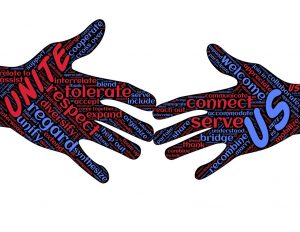Aug 20, 2019
In Reaching Out: The Three Movements of the Spiritual Life, Henri Nouwen states, “Hospitality means primarily the creation of free space where the stranger can enter and become a friend instead of an enemy. Hospitality is not to change people, but to offer them space where change can take place. It is not to bring men and women over to our side, but to offer freedom not disturbed by dividing lines.”
Dialogue Education is an exercise of hospitality. It welcomes learners as they are, brings them into a circle of community, grounded in personal experience and mutual relationships. Through hospitality, learners learn new knowledge, skills, and ways of being in the world. To be hospitable as facilitators, we must be both vulnerable and authentic.
In a learning environment, we consciously decide to be open to learners because we recognize their vulnerability and we desire to create a safe space in which they can learn. In creating space for others to be authentically themselves, we are also able to be authentically ourselves as teachers. A hospitable and welcoming learning environment offers refuge to those in need and helps them to achieve their full potential through learning.
So, how can we be hospitable? Here are some ideas to consider:
- Design with relationships in mind. The various elements of our learning designs and the facilitation of them, nurture belonging and community. Use open-ended questions that spark conversation and invite learners to engage from each other’s experiences. Use pair and small group work to build relationships so there is more opportunity for mutual learning and journeying.
- Assume a generous posture. As facilitators, we are the first to welcome learners into the learning environment. Assuming a generous posture means that we warmly invite all learners into our learning community. We greet each person by name and welcome them, just as they are, into the shared space. We let them know that we are happy they are with us and honor what they offer the group.
- Equalize power dynamics. Be mindful of power dynamics when conducting the learning needs and resources assessment (LNRA). In the learning space, break down walls that might separate learners by giving everyone a chance to share their voice and be heard. Sit with the learners as part of a circle to minimize separation between learners and facilitator. Share personal experiences to create connection, starting with yourself.
- Gather around food. Food, whether something simple like coffee and tea, or more elaborate like a shared lunch, brings a group together. Sharing food evokes past experiences of connection over food and creates a sense of belonging. When we share in this way, we are often more able to enter personal story-telling, deep dialogue and important meaning-making.
- Respect the diverse needs of the group. The LRNA offers insights into the situation of the learners and their needs. With this knowledge, we can be more ready to greet them and provide an optimal learning environment. Give learners the freedom to assume a comfortable posture for learning, whatever that might be for them – sitting or standing or a combination of the two. Encourage learners to learn as they learn best – to take notes, to sit back and listen, to keep their hands busy with something to play with, or to share stories. Each of these small actions lets each learner know that we welcome and respect their unique self as part of the learning community.
- Invite story-telling. Hearing stories that are connected to the lives and work of learners, helps them feel comfortable and respected. Stories that are relevant, meaningful and personal, encourage a sense of belonging. Telling our own stories, not only helps us learn from them ourselves but deepens our feeling of being valued. Most people hold stories close to their heart – inviting these to be shared and heard is powerful and necessary for learning that leads to personal and long-lasting change.
Facilitation as hospitality and belonging is an intentional process and involves great care. In fact, this posture is a way of being with individuals. I suggest that when we work in this way, we not only deepen learning and the work we do together, but we also build healthier organizations/companies, communities, and relationships.
How do you facilitate for hospitality and belonging?
Sarah Rudolph sarah.rudolph@mail.utoronto.ca is a member of the Institute of the Blessed Virgin Mary (Loretto Sisters) and is currently studying theology in the Master of Divinity program at Regis College.



